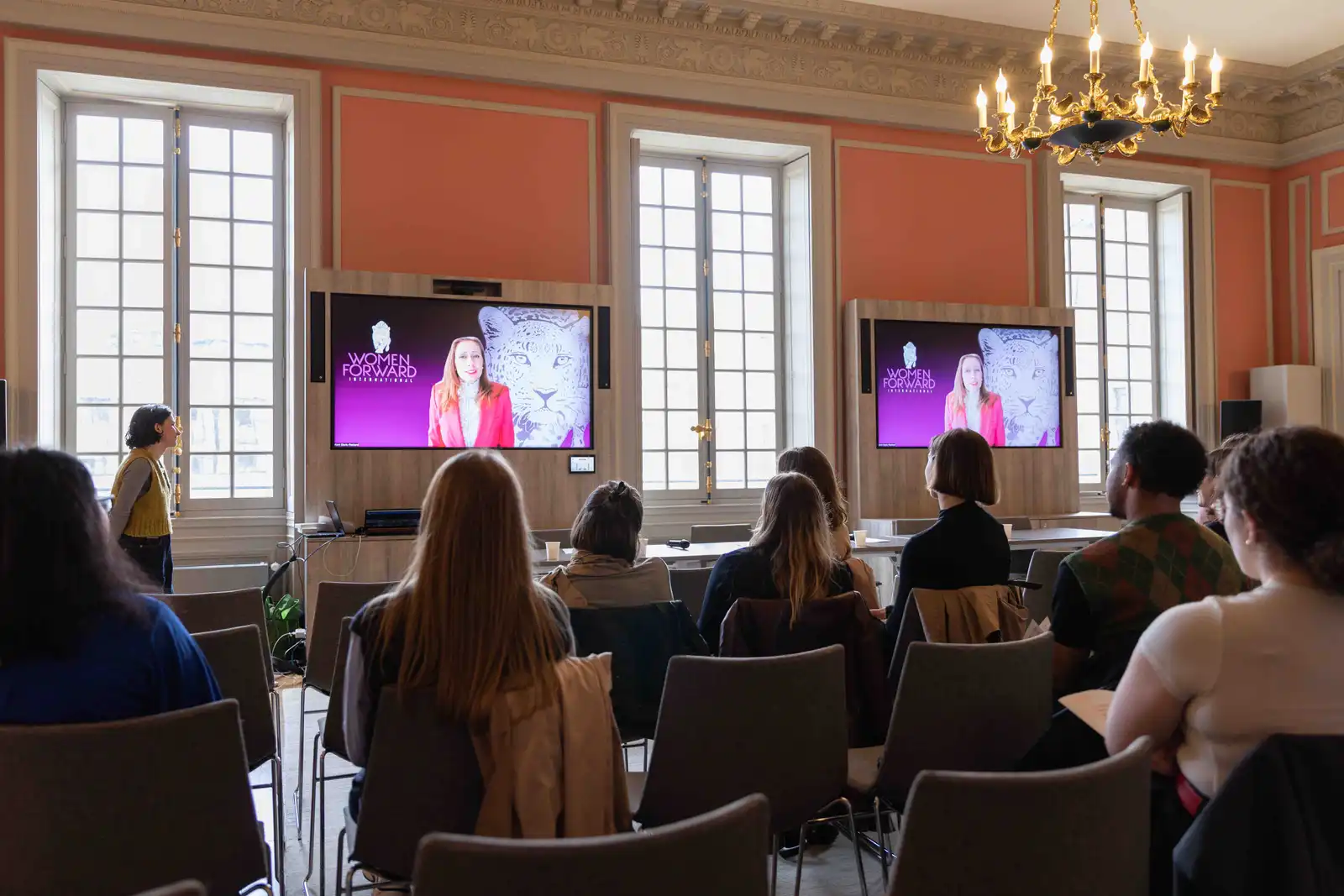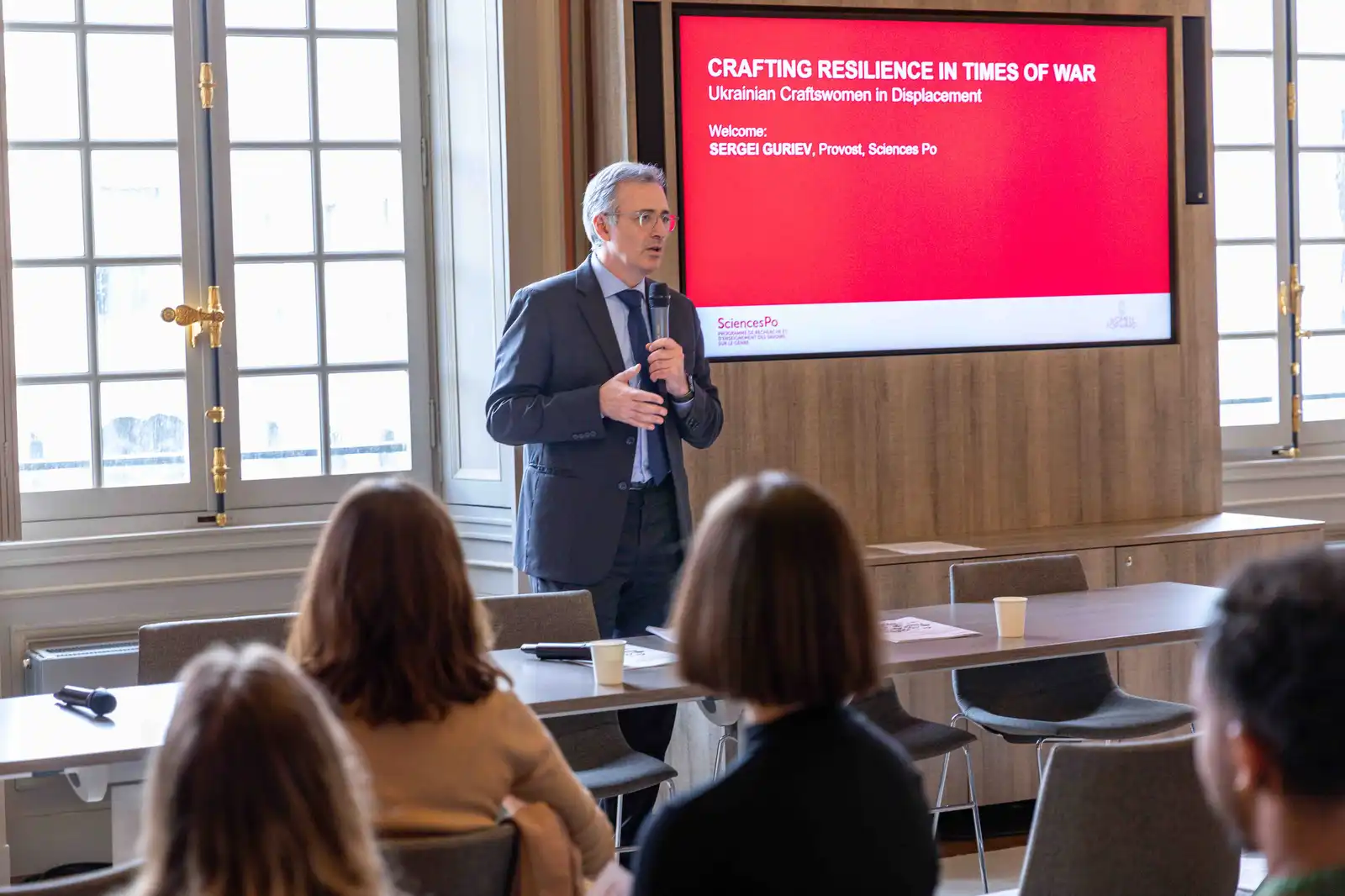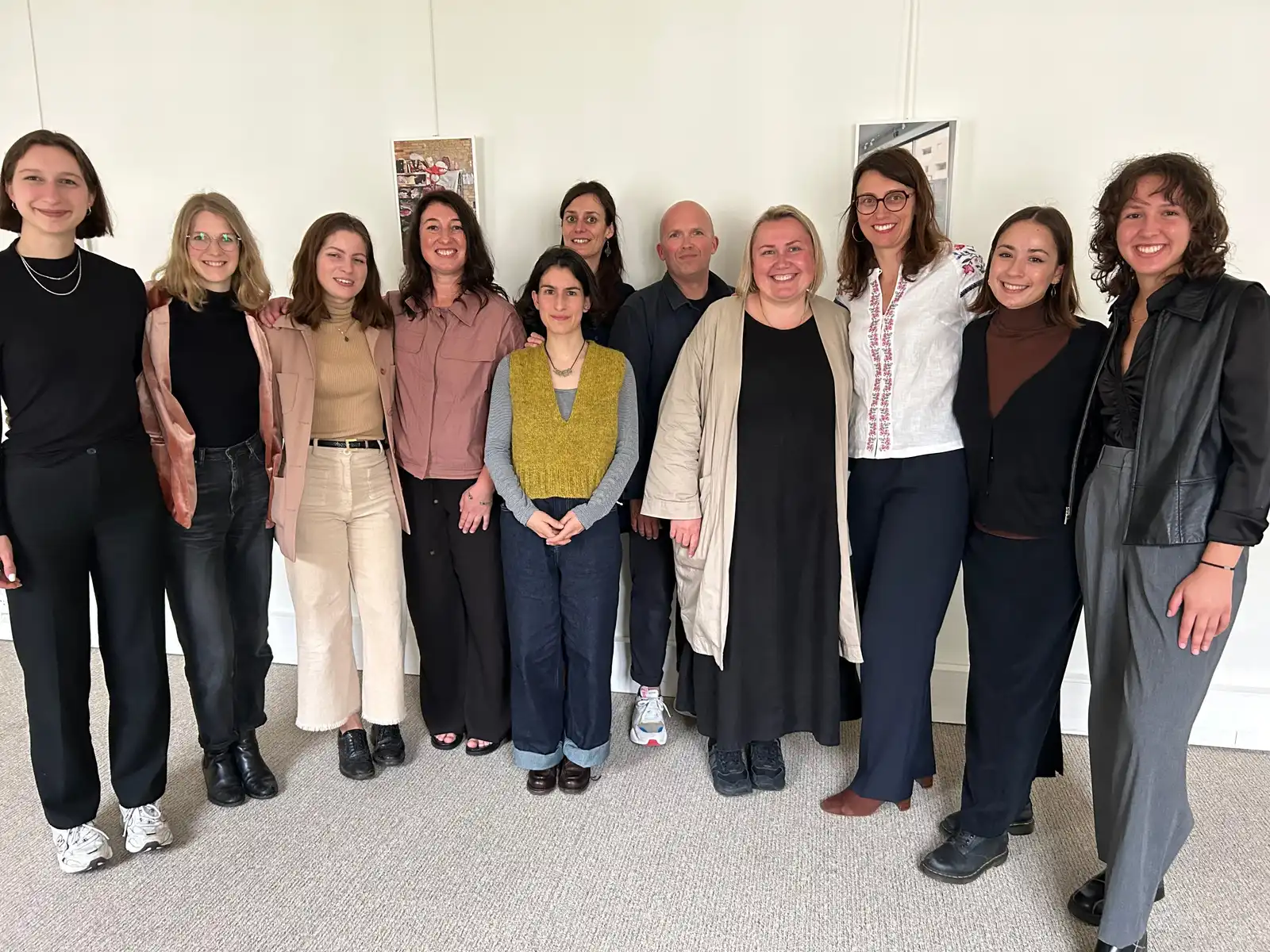Home>Ukraine and Research: A Students Report to Support Refugee Craftswomen
09.06.2023
Ukraine and Research: A Students Report to Support Refugee Craftswomen
The ongoing conflict in Ukraine has had a profound impact on the country's population, including women artisans. Many have been forced to flee their homes, leaving behind their everyday lives, communities and crafting material. Despite the challenges of war and displacement, Ukrainian women artisans continue to practise their craft, expressing their creativity, resilience, sometimes resistance, connecting with their cultural heritage to preserve it. An event was organised by Sciences Po's Gender Studies Programme (PRESAGE) to discuss this topic on 9 May, 2023.
A Cooperative Project Bridging Research and Teaching
For a fourth consecutive year, Sciences Po’s Gender Studies Programme partnered with the global platform Women Forward International to enable a group of master's students to complete an action-research project. Students Nadine Henschel, Sasha Milbeck and Clara Ruthardt from the School of Public Affairs, along with students Isabel Davis and Anaïs Fiault from the Paris School of International Affairs (PSIA) presented their report on Ukrainian craftswomen displaced by the war, exiled in France, Germany and Poland.
Of Weapons and Research
Sciences Po's Provost Sergei Guriev opened the event evoking the context of the Russian invasion in which this project took place: “This war will not be finished by research or teaching but by fighting on the battleground”. Yet, he elaborated on the relevance of research in these circumstances: “When we support communities destroyed by the war, it is our responsibility to invest resources in the most efficient way, and for that we need research, we need to understand what are the most important challenges and how we can address them. And this is why it's not only the weapons and soldiers that will decide this war, but also our ability to help Ukrainian society in the most efficient way and for that I think this report is important.”
Ambassadors for Ukrainian Culture
Maxime Forest, a Senior Research Fellow and Lecturer at Sciences Po, then led a discussion on the entanglement of crafts(wo)manship, national identity and democracy in the context of the war.
Prominent Ukrainian designer Victoria Yakusha, founder of Yakusha Design and Faina Design, spoke about the promotion of traditional crafts as a source of inspiration and as a vehicle of identity and modernity. She uncovered the mission she has given herself since the Russian invasion: “When the invasion started in 2014, I asked myself what I could do for my country. I decided in particular to create furniture with Ukrainian codes, with very unique forms, unique shapes, inspired by Ukrainian culture and history from different regions.” Her words resonated with those of Nina Japaridze, an artisan from Kyiv, Ukraine, founder of the ETHNICA shop, currently based in Pau, France, who works with traditional Ukrainian patterns and ornaments.
The Complexities of Migration
The panellists also discussed conflict and forced migration. Céline Cantat, a Lecturer at the Paris School of International Affairs mentioned the importance of thinking beyond the binaries that often structure migration policy, she added: “In the context of war and displacement, people definitely still have economic agency, and in fact it is key to resilience, to integration.”
Picking up with this view, Maxime Forest underlined the importance of agency in this collective experience and concluded the panel geared toward the future: “Ukrainian craftsmanship is definitely not only about tradition, but also about the future.”
Finally, the Spokesperson of the UN Refugee Agency in Paris, Céline Schmitt, made closing remarks. She reviewed the commitment and deployment of the UNHCR in Ukraine since 2014, and explained how in 2022 they “had to scale up very quickly”. She presented actions on which the Agency was working, especially in the lead-up to the next Global Refugee Forum taking place in December 2023 in Geneva, Switzerland. To conclude, Céline Schmitt recognised the importance of the collective: “If we work all together, we are stronger.”
LEARN MORE:



